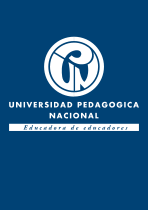Concepciones acerca de la Tecnología de estudiantes nóveles de carreras científico-tecnológicas en Argentina

Citación
Fecha
2020-08-28Autor
Roncaglia, Diana Inés
Veiga, Luis Federico
Enlace al recurso
https://revistas.pedagogica.edu.co/index.php/TED/article/view/10933Metadatos
Mostrar el registro completo del ítemResumen
Este trabajo presenta el análisis de la opinión de alumnos nóveles de las carreras de licenciatura en Biotecnología e Ingeniería en Alimentos de la Universidad Nacional de Quilmes (Argentina) UNQ, acerca de diversos aspectos de la Tecnología (T). Se utilizó como instrumento el Cuestionario de Opiniones sobre Ciencia, Tecnología y Sociedad cocts (Vázquez et al., 2006) y se analizaron las respuestas con métodos estadísticos y no estadísticos. Esta metodología presenta variaciones respecto a las que habitualmente se utilizan al aplicar dicho cuestionario. El estudio mostró que los estudiantes poseen visiones sobre la T, que están alejadas de las sostenidas por los especialistas. Incluso, se detectaron incoherencias dentro de las mismas opiniones, lo que podría indicar la falta de un modelo mental coherente acerca del fenómeno. En cuanto a las propuestas metodológicas, resultaron útiles para mostrar comportamientos que los métodos anteriores no evidenciaban. Se observó una carencia de los componentes esenciales de la alfabetización científica en alumnos que han elegido una carrera científico tecnológica (Biotecnología, Ingeniería en Alimentos).
Editorial
Editorial Universidad Pedagógica Nacional
